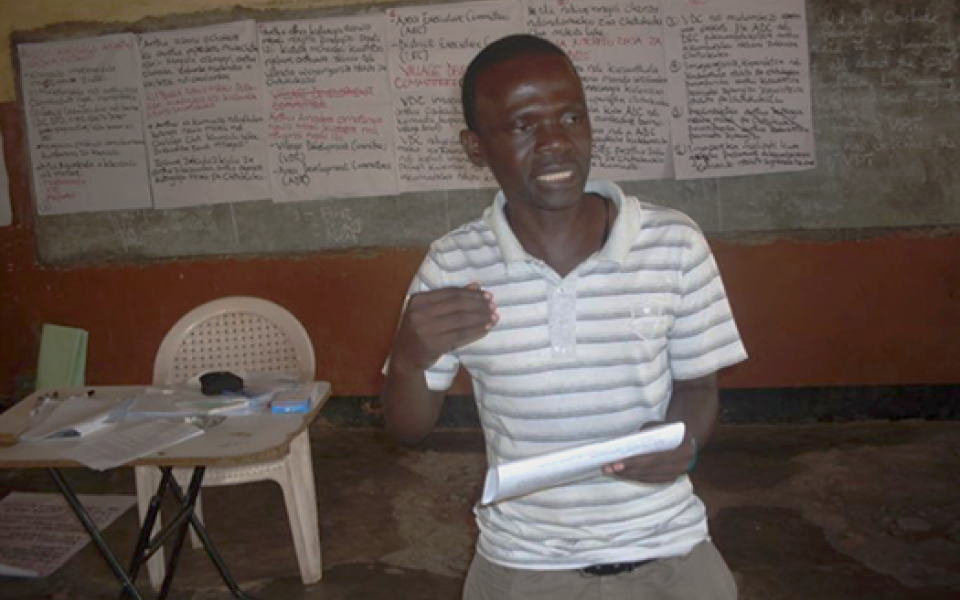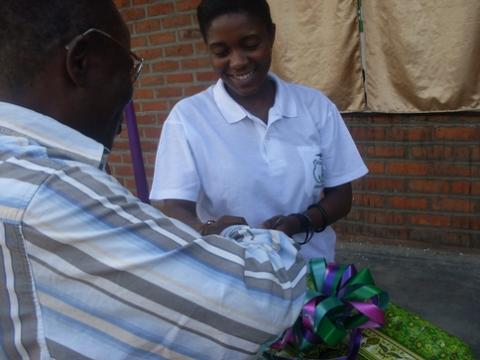The Southern Africa support team is off to Malawi to host the Youth Leadership Training and Sub-Regional Assembly in Blantyre. We are thrilled to be meeting up with Africa youth trainers Hannington and Kate - how awesome that we have these resources in Africa that we can call on, and how grateful we are to URI for creating this wonderful field of possibilities.
As we prepare for our journey, we have been thinking very carefully about our Cooperation Circles and the many pending CCs in that area. We chose this venue for our sub-regional assembly this year because of the amazing activity there - from just three active CCs in Malawi in January this year, we now have 5 active and another 5 pending applications! There is certainly a flame of self-motivated progress burning bright in the Warm Heart of Africa. We are anxious to see this flame light warm hearts all over Southern Africa, but logistics make it necessary to do only one thing at a time. So right now we are enthusiastically fanning the flame in the Malawian hearts. We are so proud of our CCs there. Attached is the story of the difference one man can make, when he is a man with a mission and a vision and is dedicated to the Greater Good.
I hope you enjoy the read.
With love and appreciation,
Berry Gargan – CC Liaison, Southern Africa
Umodzi Youth Organisation and Shy Ali: All about Empowerment
Since September 2009, when Umodzi Youth Organisation joined the global grassroots network United Religions Initiative as a cooperation circle, Shywanga (Shy) Ali has built a solid reputation for conceptualising, driving and completing significant projects that are meaningful and visionary in the Malawi context. You will find a full, printable version of the CC profile here Umodzi Youth Organisation.
This year, UYO CC has been working on establishing a computer literacy class for teenage girls. For this project they have partnered with the Youth Activists Initiative Organisation (YAIO) and the Blantyre Urban Youth Office. Girl children in Africa traditionally receive less education than their male counterparts. Their social and economic prospects are often bleak, but Shy and his team believe they can help to create better employment, education and life prospects for girls through computer literacy. Shy and his team believe computer literacy and access to the worldwide web will give girls access to information. They have identified a venue at the Blantyre Youth Urban office, but are looking for sponsors to assist with desks, chairs, computers and connectivity. The full proposal is available on request from Berry Gargan.
Shy himself is a freelance journalist working out of a humble 2mx2m office in Mbayani, suburb of Blantyre. He has a desk, a chair and two interns he is training and who currently assist him. His organisation’s track record in producing effective, efficient projects with measurable outcomes, is exemplary.
In separate projects, UYO CC in partnership with Youth Activists Initiative Organization is carrying out the “Lesson for Life Program,” in which parenting skills and childhood development feature prominently. The program is supported by UK based Strategies for Hope Trust, and involves participants from different religions. UYO CC has also been involved previously with environmental projects.
Last year, Umodzi CC led by Shy, partnered with a development partner, National democratic Institute (NDI-Malawi) to carry out a six-month civic and voter education project. It was an extraordinary idea, born out of the recognition that the tradition of voting along tribal lines in Malawian elections would never create the changes that needed to happen to take the country to true democracy and prosperity.
The first phase of the project was a weekend workshop involving 22 members of Village and Area Development Committees representing 5 separate constituencies. Shy tells us: “The training entailed strengthening the capacity and functionality of members of local governance structures in keeping track of the annual budget allocation for the district development projects in line with the district plan in trying to meet citizen’s social needs and service delivery. An experienced consultant in local governance policies was engaged to facilitate the training.”
A key feature of the training was teaching the members how to track annual budget allocations, with the aim of ensuring transparency and accountability and thereby build trust between communities and local councils.
The next step was a series of public debates where candidates were invited to address communities on what they stood for, and what they would deliver should they be voted into office. Shy and his team printed social contract booklets detailing these promises. These social contracts were handed out to the electorate.
In the final stage of the project, various stakeholders including candidates, local politicians and citizens were invited to a Signing and Presentation of Social Contract ceremony. The candidates signed the Social Contracts to show their agreement that their promises had been correctly expressed.
Shy concludes: “The project has successfully managed to empower the local citizens to hold the candidates accountable to their manifestos and campaign promises once they are voted into power. The signing of a social contract is a step towards citizenry engagement with their elected leaders in power to ensure improved quality social service delivery and sustainable socio-economic development for all the local citizens.”


